Stocking up on essentials while trying to stick to a budget can feel like walking a tightrope. With prices on the rise and tempting items all around, it’s easy to overspend without even realizing it. But with a little strategy and some smart shopping habits, you can keep your pantry full and your wallet happy. Ready to find out how you can navigate the aisles without breaking the bank? Here are some ways you can stock up on essentials without overspending at the store.
Contents
- 1 Buy in Bulk for Non-Perishables
- 2 Use Coupons and Loyalty Programs
- 3 Shop at Discount Stores
- 4 Plan Your Shopping Around Sales Cycles
- 5 Buy Generic Brands
- 6 Use Cashback and Rebate Apps
- 7 Take Advantage of Store Promotions and Buy-One-Get-One Offers
- 8 Make a Detailed Shopping List and Stick to It
- 9 Opt for Reusable Containers and Refills
- 10 Buy Seasonal Produce and Freeze It
- 11 Price Match When Possible
- 12 Avoid Convenience Foods
- 13 Check the Clearance Aisles
- 14 Stock Up When Prices Drop Significantly
- 15 Meal Plan to Avoid Overbuying
- 16 More From RetailShout
- 17 10 Easy Tips for Starting Your First Garden
- 18 14 Common Breading Mistakes When Cooking Chicken
Buy in Bulk for Non-Perishables

One of the easiest ways to save money while stocking up on essentials is to buy in bulk. Items like rice, pasta, and canned goods have long shelf lives, making bulk purchases a great investment. Check unit prices to ensure that larger packages actually provide savings over smaller ones. Many stores also offer discounts for bulk purchases, especially for pantry staples. Just make sure to store these items properly to avoid spoilage or waste.
Use Coupons and Loyalty Programs
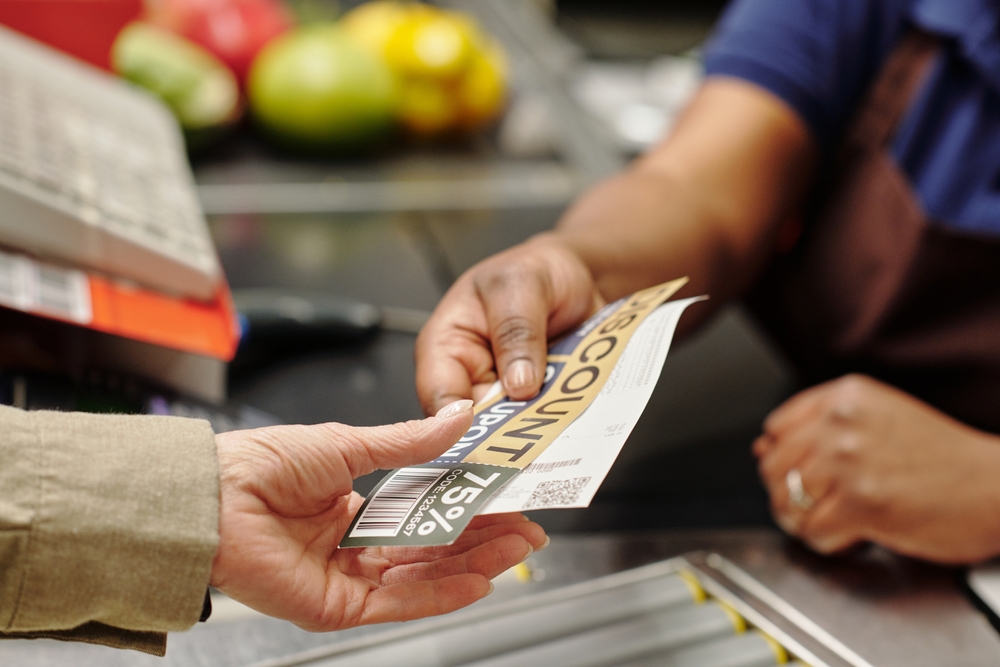
Coupons are a powerful tool to stretch your budget when shopping for essentials. You can find coupons in weekly store flyers, on product websites, or by using apps like Ibotta or Honey. Pairing coupons with in-store sales can result in even greater savings. Also, sign up for store loyalty programs, which often offer member-only discounts, points that can be redeemed for cash, or personalized deals based on your shopping habits. These programs can save you significant amounts over time without requiring extra effort.
Shop at Discount Stores

Discount stores like Aldi, Dollar Tree, or warehouse clubs such as Costco and Sam’s Club offer lower prices on many essentials. These stores carry private-label brands that are often just as good as national brands but cost much less. By buying at discount stores, you can stock up on items like household goods, toiletries, and non-perishable foods without breaking the bank. Just make sure to compare the price per unit to ensure you’re actually getting the best deal. A little research ahead of time can go a long way in maximizing your savings.
Plan Your Shopping Around Sales Cycles

Many stores operate on a sales cycle, meaning that items go on sale regularly every few weeks. By learning these cycles, you can plan to buy essentials when they’re at their lowest price. For example, meats often go on sale during holiday weekends, and canned goods are frequently discounted in the winter. Keeping track of these patterns can help you time your purchases to take advantage of the best prices. Stock up when sales are on, and you won’t need to pay full price later.
Buy Generic Brands

Generic or store-brand products often cost significantly less than their brand-name counterparts and are usually of similar quality. Items like pasta, flour, and cleaning supplies tend to perform just as well as name brands. Most stores offer money-back guarantees on their store brands, so if you’re unsatisfied, you can often return the product. Over time, switching to generic brands for essentials can result in substantial savings. Plus, many grocery stores frequently put their store brands on sale, offering even more opportunities to save.
Use Cashback and Rebate Apps

Cashback and rebate apps like Rakuten, Fetch Rewards, and Ibotta can help you save money on everyday purchases. These apps give you money back on specific items or purchases, which can quickly add up when stocking up on essentials. Many apps offer sign-up bonuses and extra rewards for scanning receipts. This way, you can make money back on items you’re already buying. Combining these rebates with sales and coupons maximizes your savings even more.
Take Advantage of Store Promotions and Buy-One-Get-One Offers

BOGO (Buy One, Get One) deals are a great way to stock up on essentials without overspending. Stores often run these promotions on items like toiletries, canned goods, or household cleaners. Take advantage of these offers to buy double the amount for less money. Some stores even allow you to stack coupons on top of these promotions for even more savings. By focusing on BOGO deals for essentials, you can effectively build your stockpile while keeping your spending in check.
Make a Detailed Shopping List and Stick to It

One of the simplest ways to avoid overspending is by making a detailed shopping list. Write down exactly what you need and avoid buying anything that’s not on the list. This method prevents impulse purchases, which are often what push you over budget. Review sales flyers and plan your list accordingly to take advantage of discounts and deals. Sticking to your list ensures you’ll only stock up on the essentials without falling prey to marketing tactics.
Opt for Reusable Containers and Refills

Refilling items like laundry detergent, hand soap, and cleaning supplies can save you money in the long run. Many stores offer refill options that are cheaper than buying a new container each time. For food storage, buying in bulk and using reusable containers can keep items fresh for longer. This strategy not only helps reduce waste but also saves money on packaging costs. Over time, choosing refills over new products can result in significant savings.
Buy Seasonal Produce and Freeze It

Fresh produce can be expensive, but buying it in season allows you to get the best deals. Stock up on fruits and vegetables when they’re at their peak freshness and cheapest prices. Then, freeze what you can’t use immediately to extend its shelf life. Many fruits and vegetables freeze well, making them perfect for smoothies, soups, or casseroles. This strategy allows you to enjoy healthy, affordable produce year-round while minimizing food waste.
Price Match When Possible

Many stores offer price matching, which means they’ll honor a competitor’s lower price on the same item. Before you go shopping, check circulars or use apps to find lower prices at other retailers. Present the proof of the lower price to the cashier at checkout, and they’ll match it, saving you money on essentials. This strategy works particularly well for big-ticket items like diapers, cleaning supplies, and non-perishables. Always have the competitor’s ad or proof ready to ensure you get the deal.
Avoid Convenience Foods
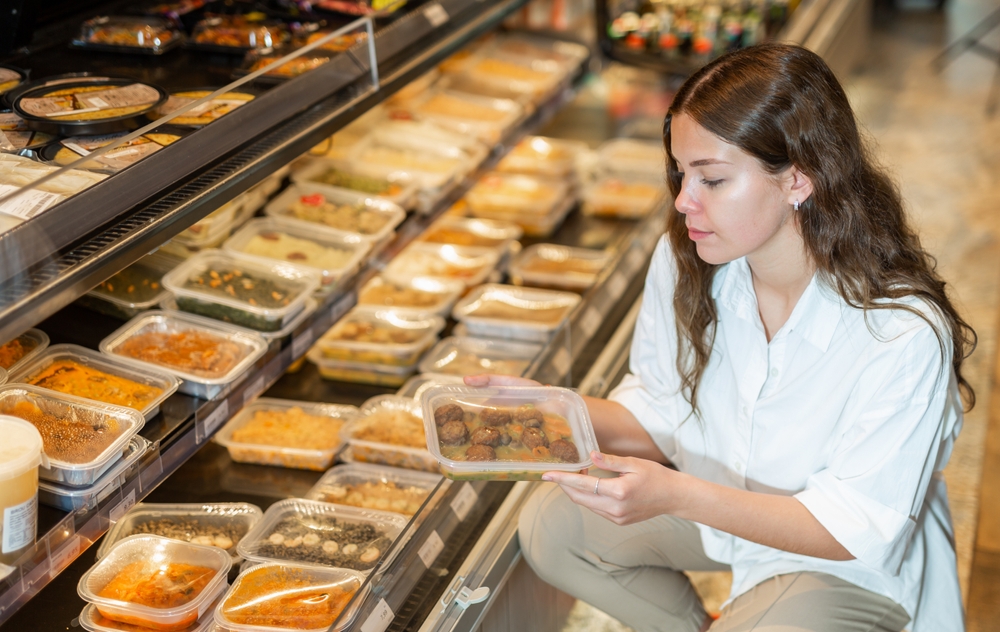
Convenience foods like pre-packaged snacks, frozen meals, and ready-to-eat products are often marked up significantly. Cooking your own meals from scratch, even in bulk, is much more cost-effective. By focusing on whole ingredients, you can make larger portions and stretch them across several meals. Items like rice, beans, and pasta are incredibly affordable and can be transformed into many different dishes. Stocking up on these basics means you’ll always have the foundation for a meal, without the added cost of convenience foods.
Check the Clearance Aisles
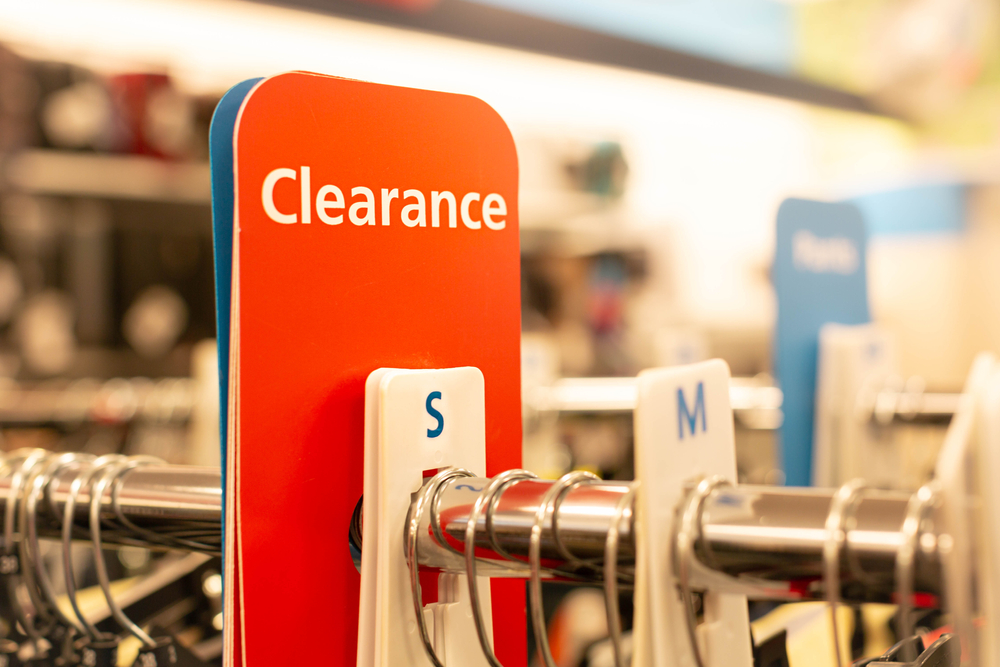
Many grocery and retail stores have clearance sections where you can find deeply discounted items. These may include slightly damaged packaging, discontinued products, or items nearing their expiration date. While you should always check expiration dates, many of these items are perfectly good for immediate use or freezing. Stocking up from the clearance section can lead to significant savings on essentials, from food to toiletries. Always keep an eye out for these deals and incorporate them into your regular shopping routine.
Stock Up When Prices Drop Significantly
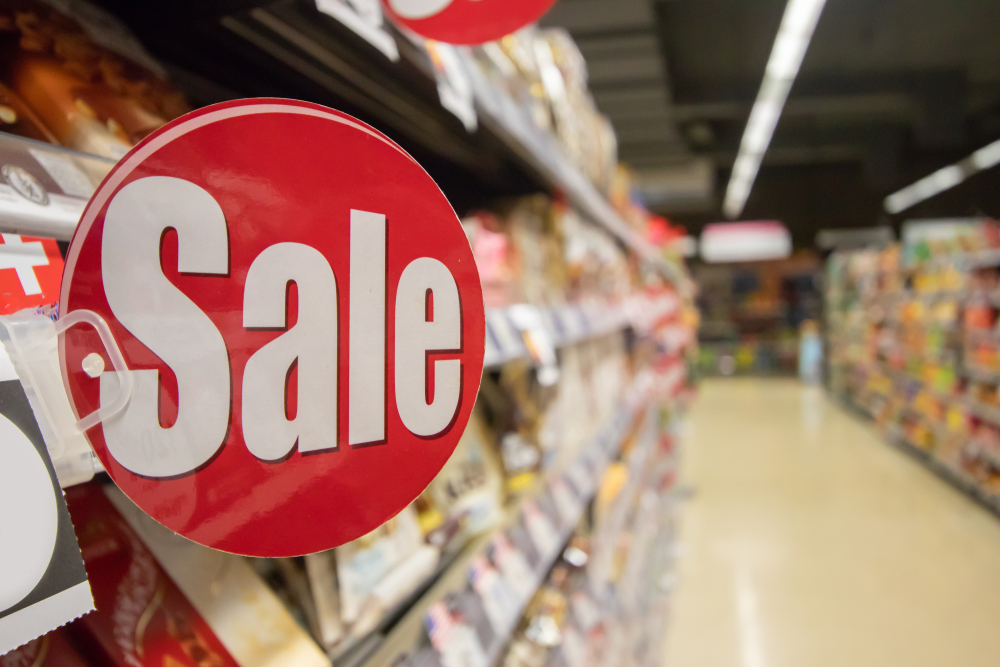
Sometimes, stores have deep discounts that are too good to pass up, especially during holidays or clearance events. When you come across such deals, it’s wise to stock up on essentials that won’t expire quickly. Even though you might spend more in one trip, it will reduce your need to shop later, potentially saving you a lot over time. Focus on items like paper towels, toilet paper, canned foods, and other non-perishables. This way, you’re always prepared without spending more than necessary down the line.
Meal Plan to Avoid Overbuying

Meal planning is an excellent way to stock up on essentials without overspending. By knowing exactly what meals you’re going to prepare, you can shop for only the ingredients you need, avoiding impulse buys. This also prevents food waste since you’re only purchasing what you’ll actually use. In addition, planning meals around what’s on sale each week can stretch your budget further. Over time, you’ll find that this method keeps your pantry well-stocked and your grocery bills lower.
This article originally appeared on RetailShout.
More From RetailShout
15 Best Time-Saving Buys at Costco
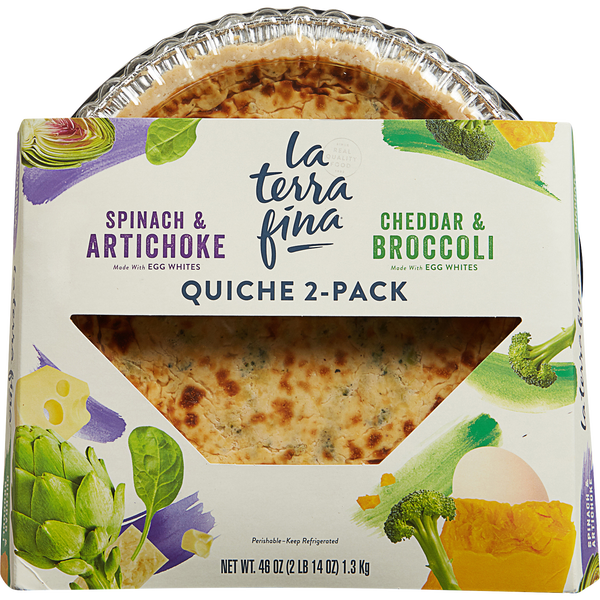
When life gets hectic, finding ways to save time in your daily routine can make a big difference. Costco, known for its wide selection and bulk bargains, offers a variety of products that not only help you cut down on costs but also streamline everyday tasks. Read More.
10 Easy Tips for Starting Your First Garden

Starting your first garden can be an incredibly rewarding experience, offering a chance to connect with nature and enjoy fresh, home-grown produce. Whether you’re aiming to grow vibrant flowers, tasty vegetables, or fragrant herbs, the key to success lies in a few simple steps. Read More.
14 Common Breading Mistakes When Cooking Chicken
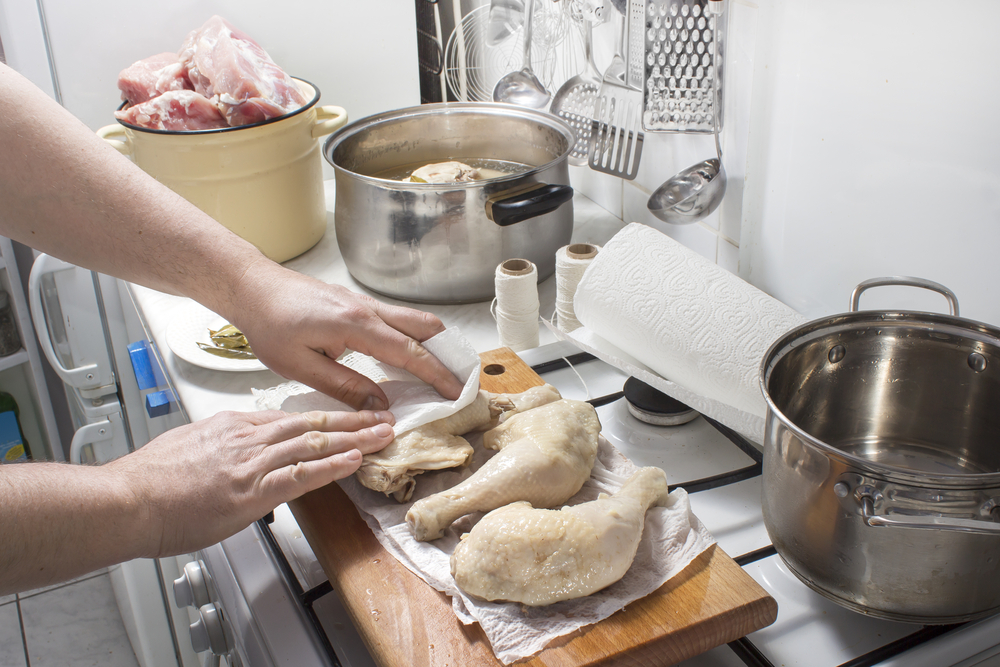
Breading chicken can seem simple, but it’s easy to mess up. Whether you’re new to cooking or just trying to perfect your technique, avoiding common pitfalls can make a big difference. Read More.






